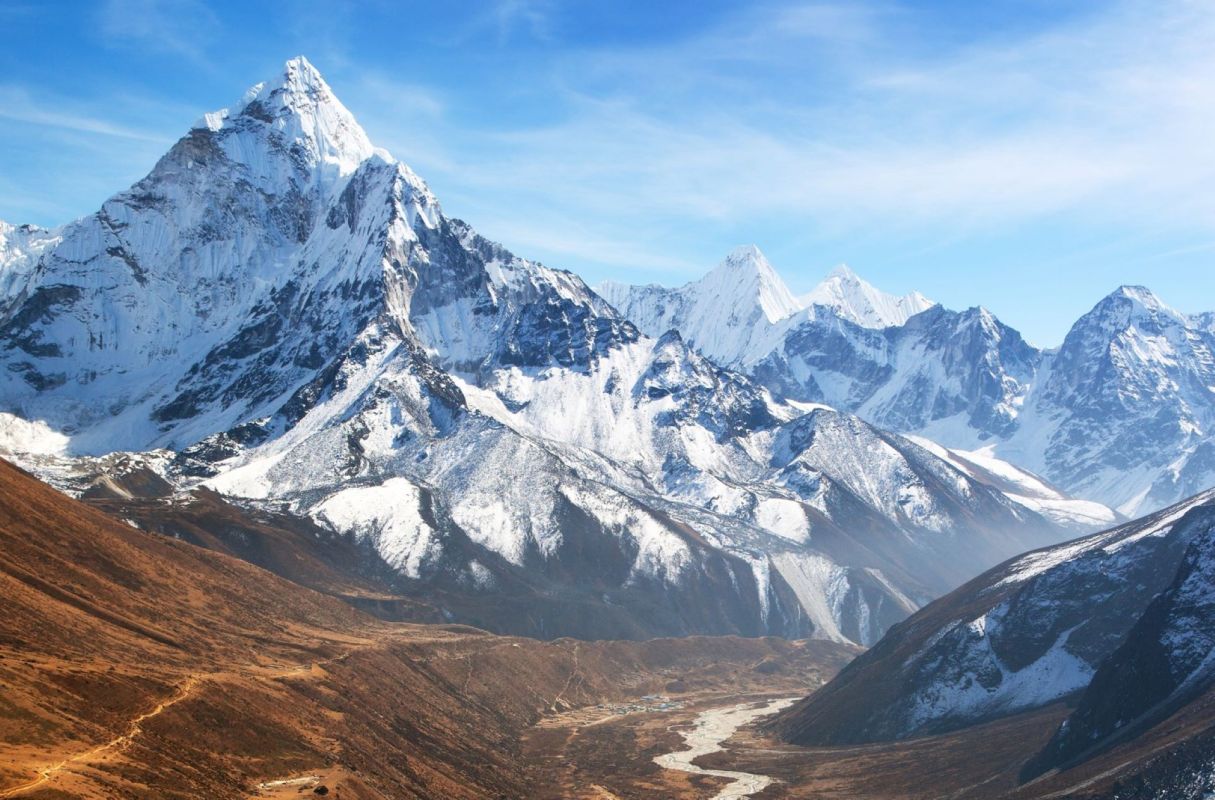The Himalayan glaciers are melting at the fastest rate ever seen, CBS News reported. It's alarming news for the climate.
What is happening?
The Hindu Kush Himalayan region (HKH) spans more than 2,000 miles and houses the highest mountains in the world, including Mount Everest. It contains the largest volume of ice on Earth outside the two poles.
According to CBS News, a 4-degree Celsius average rise could lead to a loss of up to 80% of the Himalayan glaciers' ice by the end of this century if the overheating of our planet continues.
This warning comes from a new report by ICIMOD, which states that the HKH glaciers melted 65% faster in the 2010s than in the previous decade. LiveScience further reported that Mount Everest's glaciers have lost 2,000 years of ice since 1990. Every year, they lose decades more.
Philippus Wester, the ICIMOD's chief scientist on water resources management and the report's lead editor, told CBS News. "This is a lot, this is alarming … On human time scales, we have never seen glacial melt this rapid, this fast."
Pam Pearson, director of the International Cryosphere Climate Initiative, emphasized the importance of limiting Earth's warming when she told the AP, "I get the sense that most policymakers don't take the goal seriously but, in the cryosphere, irreversible changes are already happening."
Why is the melting of these glaciers concerning?
The HKH region feeds 12 rivers that flow through 16 Asian nations, providing freshwater to nearly 2 billion people. Melting glaciers would be disastrous for them, causing floods, landslides, avalanches, and crop loss.
Indirectly, the melting of such a vast reserve of fresh water will be "felt around the world," said Izabella Koziell, deputy director general of the ICIMOD, according to CBS News. "Even if this feels remote to us sitting far away, it is going to affect us," she continued. "Whether that is through mass people movement or sea-level rise."
What can be done to slow their melting?
Scientists are emphasizing the need to slow our planet's overheating. Koziell told CBS News, "If we commit to decarbonisation now, we still have an open window. We seriously need to keep that window open … We need to seriously commit to reducing greenhouse gas emissions."
As individuals, we can help keep that window open by limiting our emissions of toxic heat-trapping gasses.
We can avoid single-use plastics, integrate clean energy like solar or wind at home when possible, replace old appliances with new energy-efficient models, and limit our burning of methane gas by taking public transportation, riding a bike, or upgrading to an electric vehicle.
Join our free newsletter for cool news and cool tips that make it easy to help yourself while helping the planet.









